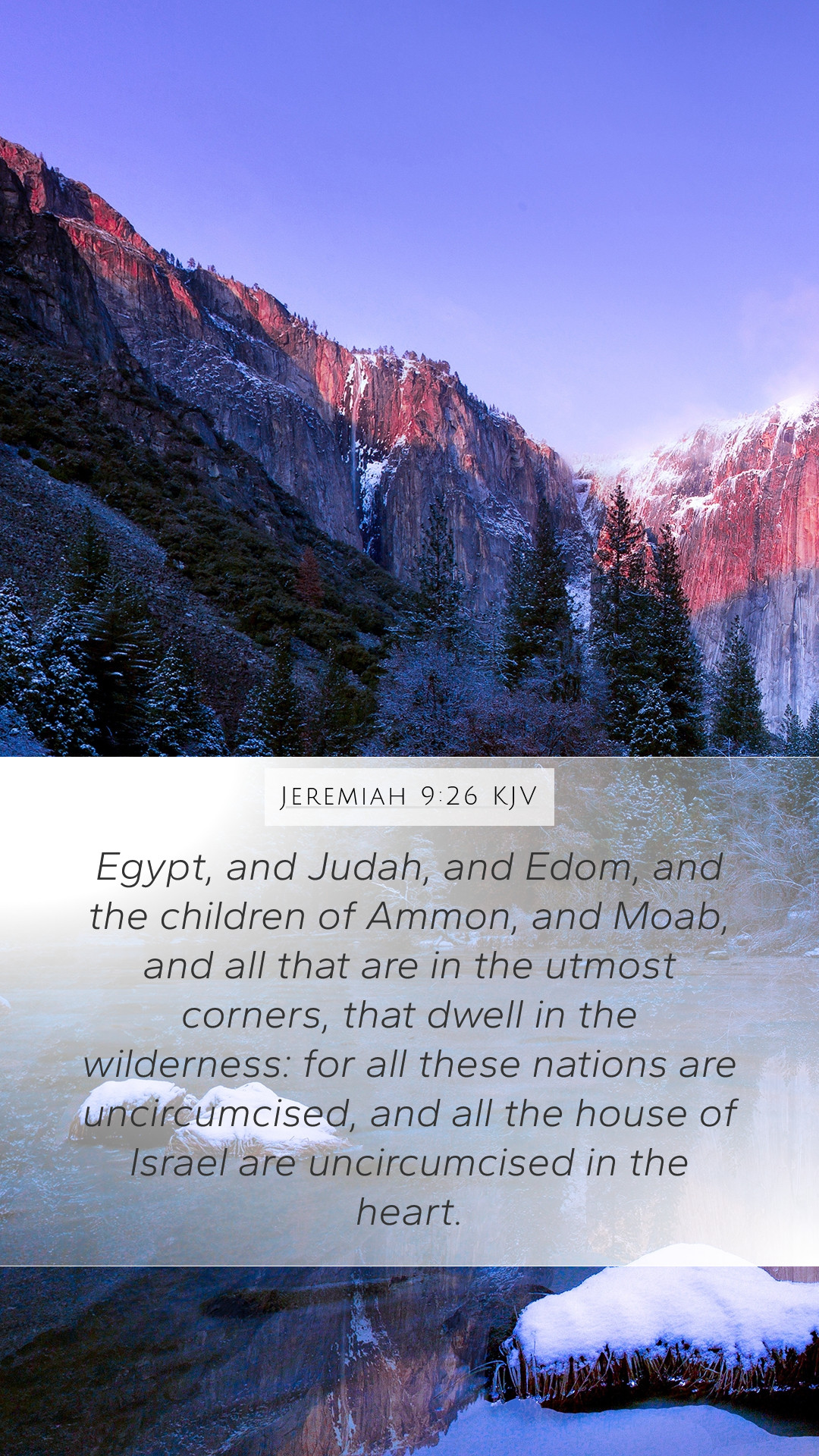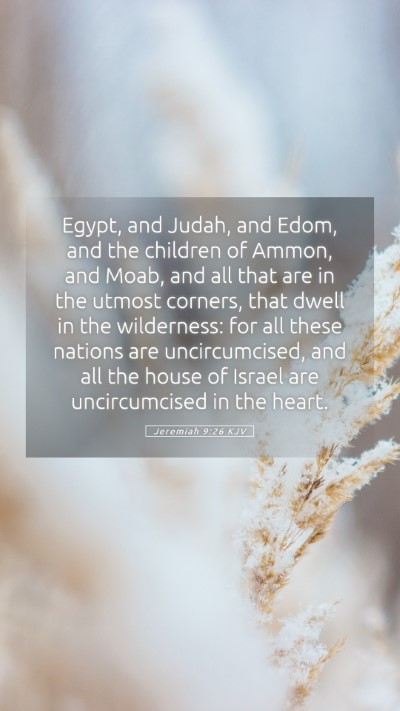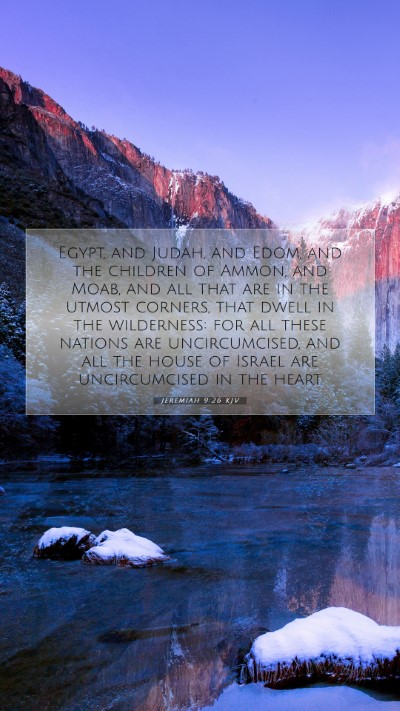Understanding Jeremiah 9:26
Jeremiah 9:26 states: "Egypt, and Judah, and Edom, and the children of Ammon, and Moab, and all that are in the uttermost corners, that dwell in the wilderness: for all these nations are uncircumcised, and all the house of Israel are uncircumcised in heart." This verse encapsulates profound themes about the spiritual state of nations, particularly Israel, in contrast to surrounding nations. Below is a synthesis of insights from various public domain commentaries, focusing on the meaning of Bible verses and providing clarity through Bible verse commentary.
Contextual Background
Through the prophetic voice of Jeremiah, this verse reflects upon the judgment of God against nations characterized by their unfaithfulness and spiritual depravity. It particularly highlights the condition of the Israelites, who, despite their covenant with God, exhibit a heart devoid of true loyalty and moral integrity. Understanding Scripture involves recognizing the historical backdrop during which Jeremiah prophesied—when both Judah and Israel faced impending doom due to their collective rebellion against God.
Interpretational Insights
- Spiritual Condition of the Nations: Jeremiah notes that many nations, including Egypt, Edom, and Moab, are "uncircumcised." In biblical terms, circumcision was a sign of covenant and belonging to God. Thus, to be uncircumcised symbolically represents a lack of relationship with God (Matthew Henry).
- The Profound Nature of the Heart: The latter part of the verse speaks to the issue of the heart being “uncircumcised.” This metaphor signifies that while nations may outwardly identify as God's people, true allegiance is a matter of the heart and integrity (Albert Barnes).
- God's Judgment and Challenges: The text serves as a warning not just to foreigners but to Israel itself, highlighting that spiritual privilege does not equate to spiritual authenticity (Adam Clarke). It indicates that judgment does not discriminate based on ethnicity but is dependent upon faithfulness to God's commands.
Application and Relevance
When seeking Bible study insights, one can apply this passage to contemporary faith contexts. The verse invites introspection regarding one’s spiritual life. Applying Bible verses to daily life means acknowledging the necessity of a sincere heart and a genuine relationship with God.
In forums such as Bible study groups or online Bible study, discussing this verse can unearth diverse perspectives on the theme of covenant, spiritual identity, and genuine faith.
Cross References
This verse connects with several other biblical passages that elaborate on similar themes:
- Deuteronomy 10:16: "Circumcise therefore the foreskin of your heart, and be no more stiffnecked."
- Romans 2:28-29: "For he is not a Jew, which is one outwardly; neither is that circumcision, which is outward in the flesh: But he is a Jew, which is one inwardly; and circumcision is that of the heart."
- Isaiah 57:21: "There is no peace, saith my God, to the wicked."
Conclusion
In summary, understanding this scripture involves a rigorous Biblical exegesis and an individual examination of one's heart concerning faithfulness to God. The verse serves as a call to authenticity in our relationship with God, encouraging believers to ensure their spiritual identity aligns with their outward expressions. As we delve deeper into verses like Jeremiah 9:26, we foster greater clarity in understanding difficult Bible passages and encourage enriched discussions in Bible study lessons.


